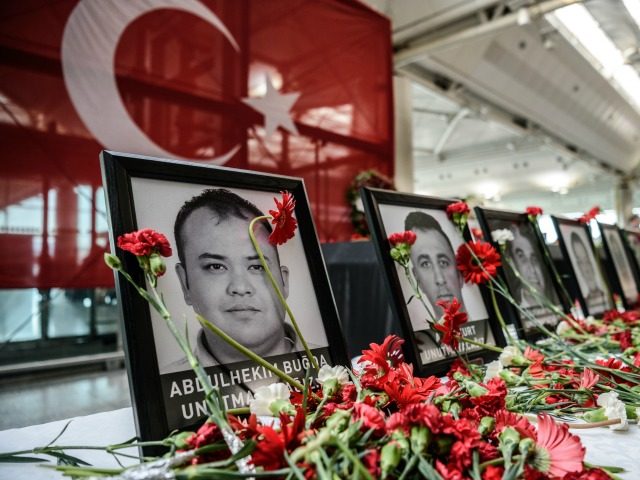Turkish authorities have now charged a total of 30 suspects for the June 28 suicide bombing attack in Istanbul’s Ataturk Airport, which left 44 people dead and 240 wounded.
Last Sunday, Turkish counterterrorism forces charged 13 suspects in the attack and identified the three suicide bombers as ISIS-affiliated citizens of three ex-Soviet bloc countries: Uzbekistan, Kyrgyzstan and Russia.
Now Turkey has charged another 17 suspects in the bombing, 11 of whom are allegedly foreigners tied to an Islamic State cell thought to be behind the attacks, accusing them of “membership in an armed terrorist organization.”
Turkish media have named the organizer of the attack as Akhmed Chatayev, a Chechen thought to have worked as a recruiter for the Islamic State. Chatayev’s name appears in a United Nations list as head of the Islamic State for the training of Russian language jihadists.
The Turkish daily Hurriyet has added that two other major attacks in the heart of the city are traceable to Chatayev’s direction, a March attack in a shopping district that left five dead and the massacre of tourists near the Blue Mosque in January.
Authorities are reportedly looking for Chatayev now, following leads that he has Austrian refugee status and that he lost an arm during fighting in Russia’s North Caucasus.
President Recep Tayyip Erdogan has expressed his own conviction that the Islamic State was behind the terror attack, asserting that they “have nothing to do with Islam. Their place is Hell.”
Turkey’s Foreign Minister Mevlüt Çavuşoğlu has rejected theories that the airport attack was a retaliatory act by ISIS in response to recent conciliatory moves of President Erdogan toward Russia and Israel, calling the hypothesis “unsustainable.” Çavuşoğlu said that a complex plot of the sort would have required weeks of preparation and not the “hours” that followed Turkey’s rapprochement with Russia and Israel.
The foreign minister said a more credible theory is that the action had been planned for some time as part of a strategy to cripple tourism, as has been seen elsewhere in the Middle East and North Africa.
“Turkey has come under the crosshairs of ISIS because it fights [ISIS] directly,” he said.
Follow Thomas D. Williams on Twitter

COMMENTS
Please let us know if you're having issues with commenting.